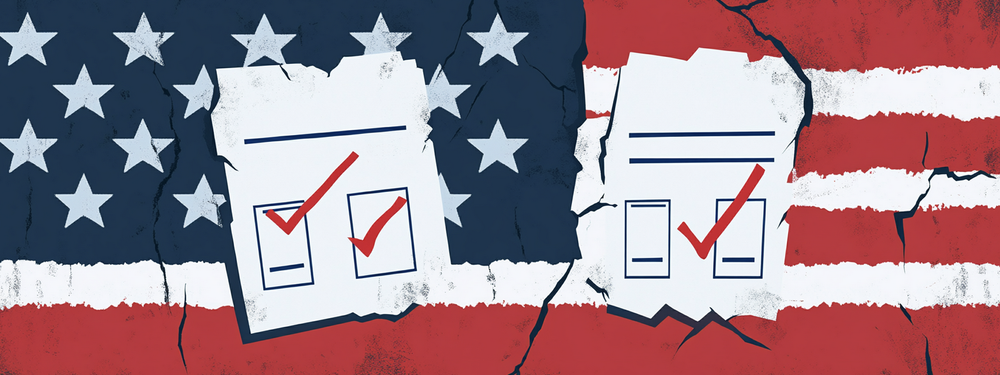Voting Twice for Secession Would be More Fair
Thinking about secession and mechanisms
Reflecting on America’s Independence Day and the bloody wars* involved leads me to recognize that one of the great advances of the 20th century has been a broad recognition of a right to secede. We gained general agreement that when it becomes necessary for one people to dissolve the political bands which have connected them with another, it’s better to do so by voting rather than killing. Or, really, the free world resoundingly answered what Malcom X’s framed as “the question of the ballot or the bullet.”
That raises the question: are we doing so in the best way possible? In the case of the UK, Leave won Brexit by 51.9:48.1, or about 4 percent (1.3 million votes out of 33 million, with 72% turnout. In Quebec’s 1995 election, No won by 50,000 votes out of 4.8 million with a 93% turnout.
Today, there are many independence movements. Canadian opposition leader Pierre Poilievre has to contend with Alberta separatists as he tries to get back into the House of Commons. Apparently Iran is sock puppeting for Scottish Independence, and I could go on, but I’d like to talk about the mechanisms of secession. A single vote to secede did not serve Britain well. Claims were made in the campaign for Leave that... didn’t stand up, perhaps most famously that the UK would move £350 million a week from the EU to the NHS. (Some roundups include 7 broken Brexit promises the Tories want you to forget, or 15 things Vote Leave promised on Brexit — and what it got. That second article has a subhead of “Some Leave voters may be disappointed.”
Everyone would be better off with two votes
Voters should have a chance to vote on the concept and on the implementation. If that second vote fails, then secession is off the table for some decent period, perhaps a generation.
For example, Britain would be better off if, following the Leave vote, voters had a chance to vote on the final deal that was in front of them. Giving voters another choice would have allowed them to choose how to “Get Brexit Done:” Agree to the deal, or kill Brexit. Without a second vote, the only way to respect the will of the voters was to push through a bad deal. (It’s tempting to write “an unexpectedly bad deal,” but many Remain voters expected a bad deal.
Perhaps the knowledge that a second vote is coming up would lead to harsher negotiation over the terms of secession. It’s hard to estimate how likely that is, but one side or the other can always refuse a bad enough deal and default to the norms between nations, or even return to the question of the ballot or the bullet. Additionally, most secession movements today would result in a new country in close proximity, with bonds of trade, family and familiarity which create pressure towards a fair-ish deal.
What’s more, knowing that there’s another vote and a deeply disaffected minority who’ll be your angry voters if they remain will lead to more generous negotiation, in the spirit of “don’t let the door hit you on the way out.”
Perhaps a second vote could be anti-democratic: the will of the voters in voting “Leave” should be respected! This is a tremendously strong argument, given the perception that elites ignore popular opinion. But the argument cuts both ways. If the elites negotiate a deal other than the one that informed popular opinion, it is profoundly democratic to let the voters have their say.
The best way to handle secession movements is a societal expectation of two votes. One vote on the concept and one vote on the implementation. This mirrors the steps many societies place on other consequential decisions. Buying a house involves an offer, followed by a purchase agreement, followed by a closing. (At least in the US, which is the system I know best.)
Those opposed to secession might put forward the concept of two votes, expecting to lose the first and win the second, or simply because they want to give the voters a chance.
Secession is the most consequential election voters will face. Having a chance to vote twice seems like a reasonable part of how it ought to work. In almost all cases, a plebiscite on secession is outside the Constitutional order, and so the rules are set only by expectations of fairness, and what Jefferson termed “a decent respect to the opinions of mankind.”
All of this is more interesting as the US Supreme Court chooses to liberate us from the dead hand of the past and abandon precedents long established. Implicitly, these changes may reopen the question of secession from these United States; a question that I’d thought was settled, but then, I thought the same of a variety of decisions and doctrines, such as Roe and Chevron deference.
* The Revolutionary War and the War of 1812.